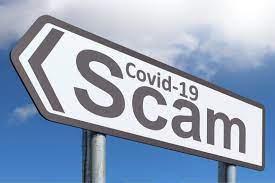Counterfeit Pfizer Vaccines Found in Multiple Countries

April 27, 2021
American pharmaceutical corporation Pfizer confirmed that fraudulent versions of the Pfizer-BioNTech coronavirus vaccine have been found in Mexico and Poland. With a limited supply of COVID-19 vaccines and desperation to receive one in many countries with rising cases, criminals have taken advantage of the situation to earn quick cash by manipulating unsuspecting people.
The World Health Organization has warned about the dangers surrounding counterfeit vaccines and is working to remove fraudulent doses from circulation. Fake vaccines can carry untested substances that can harm people, especially vulnerable populations that are desperate and in turn, these populations are more easily fooled into accepting such schemes.
In January, Polish authorities arrested a man who was attempting to administer fake Pfizer doses. They managed to identify him before anyone received shots of the criminal’s fraudulent vaccine which contained hyaluronic acid, an ingredient in anti-wrinkle treatments. The fake vaccines were not in the vials used by Pfizer, which was an immediate giveaway to their fabrication. Criminals who have attempted to scam others with counterfeit doses have been unsuccessful in replicating Pfizer’s vaccine, largely because of the company’s caution to not release images of the vials to the media.
In Nuevo León, Mexico, the police detained 6 individuals for injecting people with distilled water in the form of fraudulent vaccine shots in February. After analyzing the vials’ labels and expiration dates, Pfizer confirmed that they were not authentic and proceeded to test the doses to determine the substance. According to the Wall Street Journal, around 80 people received counterfeit versions of the vaccine for almost $1,000 per dose, but the victims appear to be physically unharmed. Pfizer, as well as the Mexican government, has urged people to avoid receiving vaccines from online or private distributors, as legitimate doses are only available through certified vaccine providers.
Pfizer also identified falsified vaccines in manufacturing facilities in South Africa and China last month and arrested more than 80 people involved, according to Interpol.
While no fraudulent vaccines have been identified in the United States, scam websites are known to ask for personal information for the user to see if they are eligible for a dose. The National Intellectual Property Rights Coordination Center, a component of the U.S. Department of Homeland Security, has been investigating online scams and removing them. Despite the official appearance of some of these websites, experts say it is easy to distinguish them from genuine ones because currently, authentic vaccines are only sold to governments, not independent institutions.

